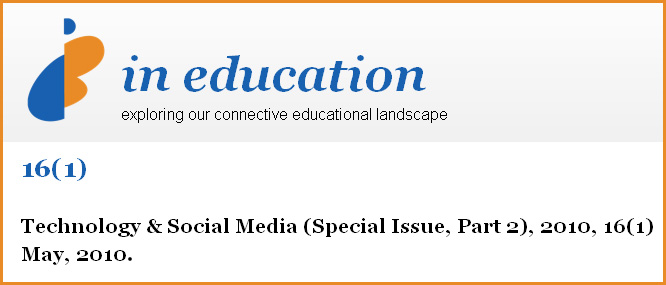Some examples:
Systemic Changes in Higher Education
Author(s): George Siemens | Kathleen Matheos
A power shift is occurring in higher education, driven by two trends: (a) the increased freedom of learners to access, create, and re-create content; and (b) the opportunity for learners to interact with each other outside of a mediating agent. Information access and dialogue, previously under control of the educator, can now be readily fulfilled by learners. When the essential mandate of universities is buffeted by global, social/political, technological, and educational change pressures, questions about the future of universities become prominent. The integrated university faces numerous challenges, including a decoupling of research and teaching functions. Do we still need physical classrooms? Are courses effective when information is fluid across disciplines and subject to continual changes? What value does a university provide society when educational resources and processes are open and transparent?
The Net Generation’s Informal and Educational Use of New Technologies
Author: Swapna Kumar
Harnessing New Technologies to Teach Academic Writing to the Net Generation
Author(s): Sean Wiebe | Sandy McAuley
Abstract:
While the ubiquity of Web 2.0 technologies disrupts conventional notions of schooling and literacy, its impact on learning is idiosyncratic at best. Taking the form of a dialogue based on the fifteen-week collaboration of two colleagues implementing an innovative first-year university writing course, this paper documents some of the successes and challenges they faced as they sought to create a space for those technologies in their classrooms.









